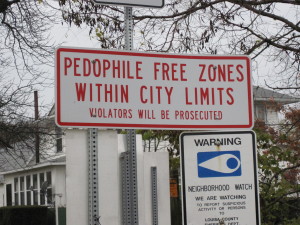According to multiple news sources, including Reuters, the California Supreme Court has ruled that certain aspects of Jessica’s Law, or at least the way it was enforced in San Diego County, is unconstitutional. Jessica’s Law makes it illegal for registered sex offenders to live within Two Thousand feet from any school or park regularly used by children. It was passed in California by proposition in 2006. 4 plaintiffs from San Diego filed suit arguing that these restrictions infringed on their liberty and primacy interests.
The court was concerned with San Diego’s “blanket enforcement” of the law, stating:
“Blanket enforcement of residency restrictions against these parolees has … infringed on their liberty and privacy interests, however limited, while bearing no rational relationship to advancing the state’s legitimate goal of protecting children from sexual predators.”
No indication from news sources, or Santa Cruz County Car accident lawyers, as to what type of enforcement the Court was comfortable with, but this ruling will obviously open up similar legal challenges throughout California. To be clear though, the California Supreme Court did not find the “Jessica’s Law” measure in and of itself unconstitutional, simply San Diego’s blanket enforcement of the law. If enforcement of the law is unconstitutional, how is the law constitutional in the first place? That is a question the courts will undoubtedly have to deal with at some point in time, but for now they have merely punted the ball and ruled that San Diego County has to change the way they enforce a law.

